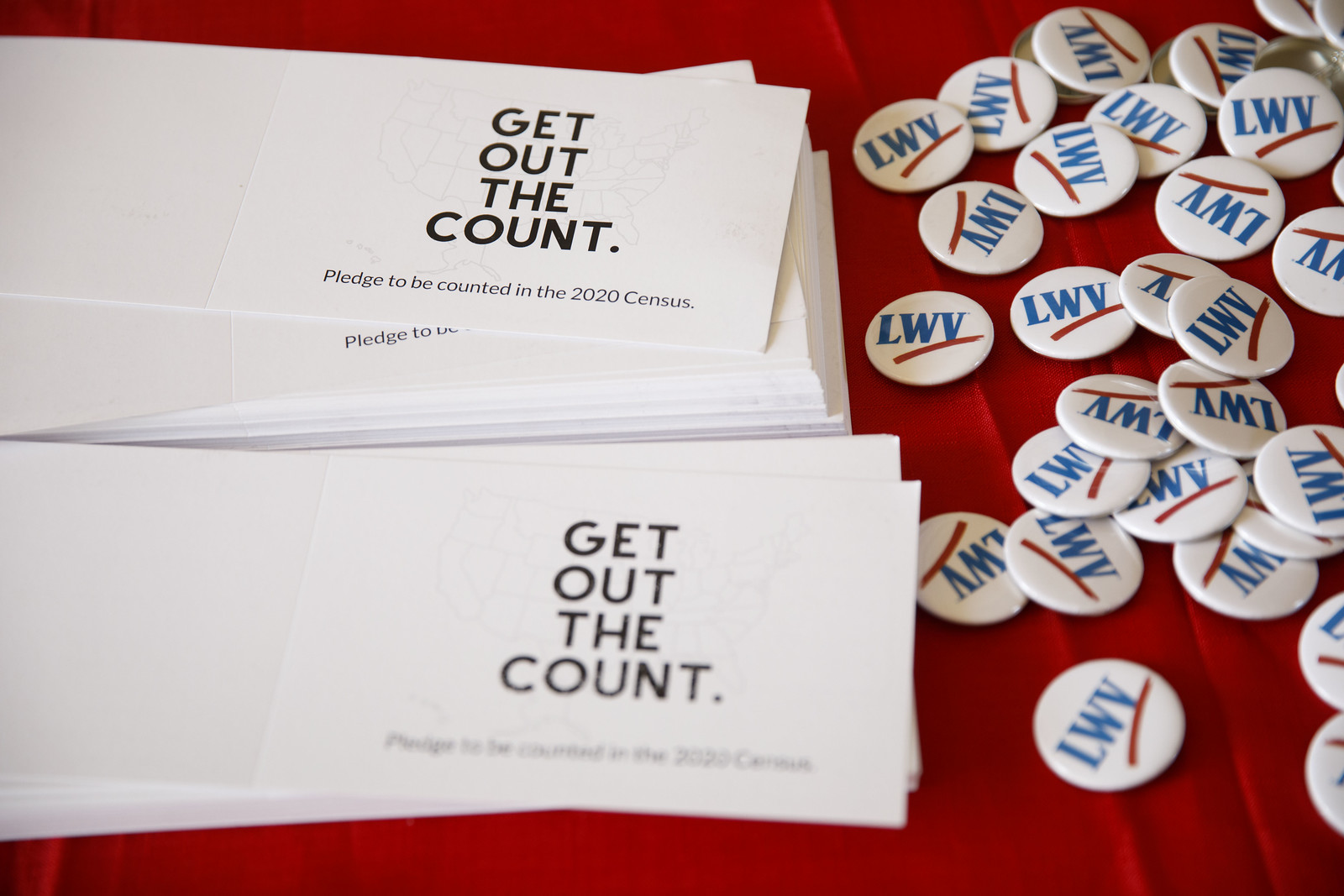
Louisiana v. Department of Commerce
Case Summary
League of Women Voters (LWV), League of Women Voters of Florida (LWVFL), and League of Women Voters of New York State (LWVNYS) moved to intervene as defendants in a federal lawsuit challenging how the decennial census counts people, and which seeks to add a citizenship question to the 2030 Census. The League intervened to protect the constitutional directive to use the whole population, regardless of citizenship status, in apportioning seats in Congress and the Electoral College, determining where federal funding goes, and ensuring the census captures an accurate count of the population.
Every decade, the US Census Bureau conducts the decennial census to assess the number of people living in America, track demographics, determine federal funding allocations, and apportion seats in the House of Representatives and Electoral College. Based on state population counts from each census, each state is given a specific number of seats in the House for the following ten years. The results are also used in redistricting to adjust electoral districts in a state based on population.
The census count is guided by the constitution and federal law that require counting all residents. The Bureau uses a Residence Rule, which directs the counting of all residents, to determine where people should be counted for a fair count. The census has always counted every person residing in the country, regardless of whether they are a United States citizen. If citizenship is required to be counted, millions of legal and undocumented immigrants will be left out of the count that informs representation in government, apportionment in redistricting, and allocation in spending.
During President Trump’s first term, in 2018, the Department of Commerce attempted to add a citizenship question to the 2020 Census. The state of New York and various other states, cities, and mayors sued the Commerce Department, arguing that the decision to add the question was illegal. The case made its way up to the Supreme Court (Department of Commerce v. New York) and on June 27, 2019, the Supreme Court blocked the addition of the citizenship question. On July 11, 2019, the federal government announced it would abandon the citizenship question.
The Residence Rule was used in conducting the 2020 Census and foreign citizens living in the US were counted in the 2020 Census. The total number of residents was, as always, used to determine apportionment and impact redistricting.
On January 17, 2025, the states of Louisiana, Kansas, Ohio, and West Virginia filed a complaint against the US Department of Commerce, Secretary of Commerce, US Census Bureau, and its director, challenging the Bureau’s Residence Rule. The plaintiffs alleged apportionment should be based on citizenship, not residency. They sought a declaratory judgment that the Residence Rule and apportionment including non-citizens is unlawful. They also asked the court to require the Department of Commerce and Census Bureau to include questions on citizenship and legal status on the 2030 Census and future censuses. Lastly, the plaintiffs requested the case be remanded to the Department of Commerce and Census Bureau so they could issue new rules for conducting the census.
On January 27, 2025, after the change in presidential administration, voters living in California and Texas filed a motion to intervene to defend inclusion of noncitizens in the census. On February 14, 2025, the County of Santa Clara, California moved to intervene as well.
On March 3, 2025, the defendants filed a motion to stay the case, including staying deadlines regarding responses to pending motions to intervene, to allow them time to confer about the issues raised with the new Commerce Department leadership. On March 6, 2025, the court granted defendants’ motion to stay the case, pausing proceedings until further order. The court also struck the pending motions to intervene from the record and ordered them to be refiled. Lastly, the court stated the plaintiffs and defendants must file a joint status report on May 2, 2025.
On April 10, 2025, the League of Women Voters (LWV), the League of Women Voters of Florida (LWVFL), and the League of Women Voters of New York State (LWVNYS), together, “the League” or “Proposed-Intervenors,” filed a motion to intervene as defendants in the case. Because of the first Trump administration’s attempts to add a citizenship question to the census, the League moved to intervene to defend the Residence Rule because the current defendants, the Trump administration, would likely not defend it. The League sought to ensure all residents were counted in the census. If a citizenship question is added to the census, many states, including Florida and New York, will likely lose congressional seats. Nationwide, a citizenship question would deter participation, cause an extreme undercount, negatively impact federal funding decisions, and undermine the accuracy of the census.
Litigation in this case is ongoing.
The League is represented by the Southern Poverty Law Center.
LWV Timeline
Plaintiffs file lawsuit in federal court
Louisiana, Kansas, Ohio, and West Virginia file a complaint against the Department of Commerce alleging the Residence Rule is unlawful.
Court grants defendants’ motion to stay the case
The district court pauses the case and requests that parties file a joint status report on May 2, 2025.
LWV, LWVFL, and LWVNYS file a motion to intervene
The League files a motion to join the lawsuit as intervenor-defendants to defend the Residence Rule.




